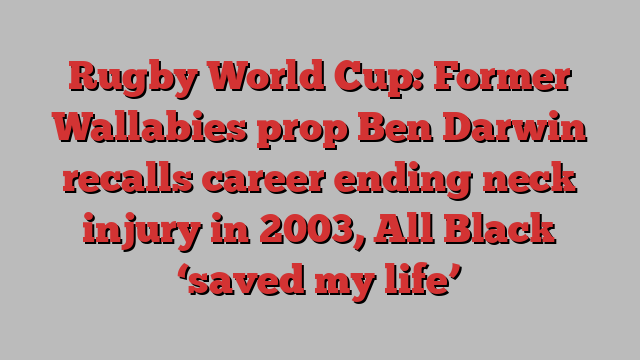
The 2003 Rugby World Cup semi-final between the Wallabies and All Blacks is remembered for Stirling Mortlock’s match-swinging intercept of Carlos Spencer and George Gregan’s infamous “four more years” sledge directed at Byron Kelleher.
But, two decades on, a scary and sobering incident from that Sydney night has been somewhat forgotten.
It was the last match of Wallabies prop Ben Darwin’s highly promising career.
Watch the 2023 Rugby World Cup on the home of rugby, Stan Sport. All matches streaming ad free, live and on demand
As he had done thousands of times before, Darwin packed down for a scrum, considered his tactics and braced for the brutal impact against big Kees Meeuws.
Only this time things went horribly wrong.
“With Kees being a tighthead (playing at loosehead), he came on as a substitute and was just very aggressive, very up and down. And I just took the wrong angle,” Darwin told Wide World of Sports.
AS IT HAPPENED: All the scores and action from the US Open day four
READ MORE: ‘Real struggle’ rocks Roosters star stuck in ‘fishbowl’
READ MORE: Aussie to be first transgender cricketer at World Cup
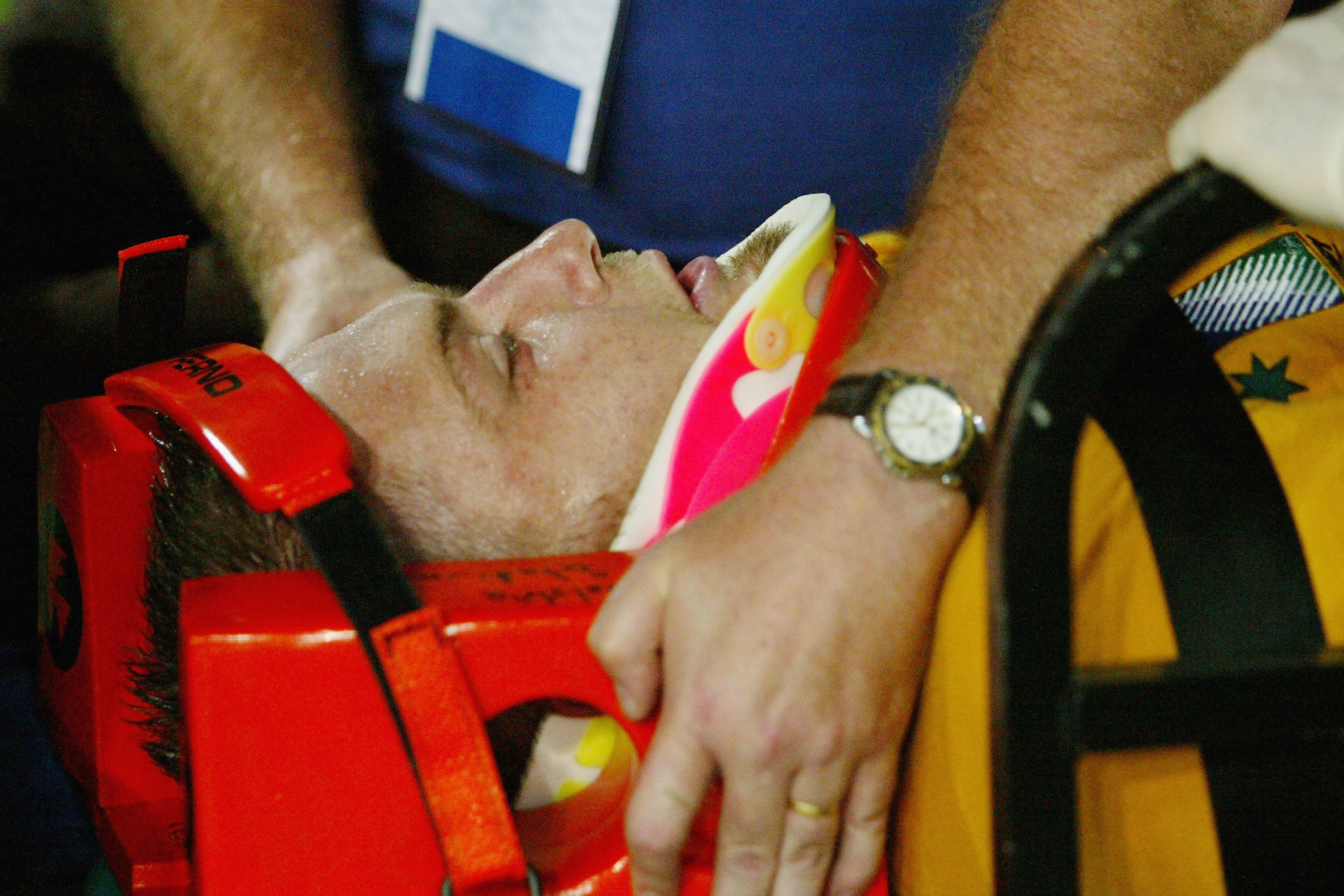

“I got my head caught on his shoulder and it’s like your sternum was getting lifted. And then it was this feeling of being completely floppy. If you go back and watch the footage, it just looks like I’ve been shot – like the body flops.
“The immediate thought was, OK, if I’m a quadriplegic, I really like computers. I’m going to get into computers. I was trying to think, you’re trying to solve the problem. This is my new problem. If I’m a quadriplegic, or going back to uni… I think I was trying to settle myself down because I was in shock. And I couldn’t turn my body to look up.”
After the damaging impact, Darwin cried “neck, neck, neck.”
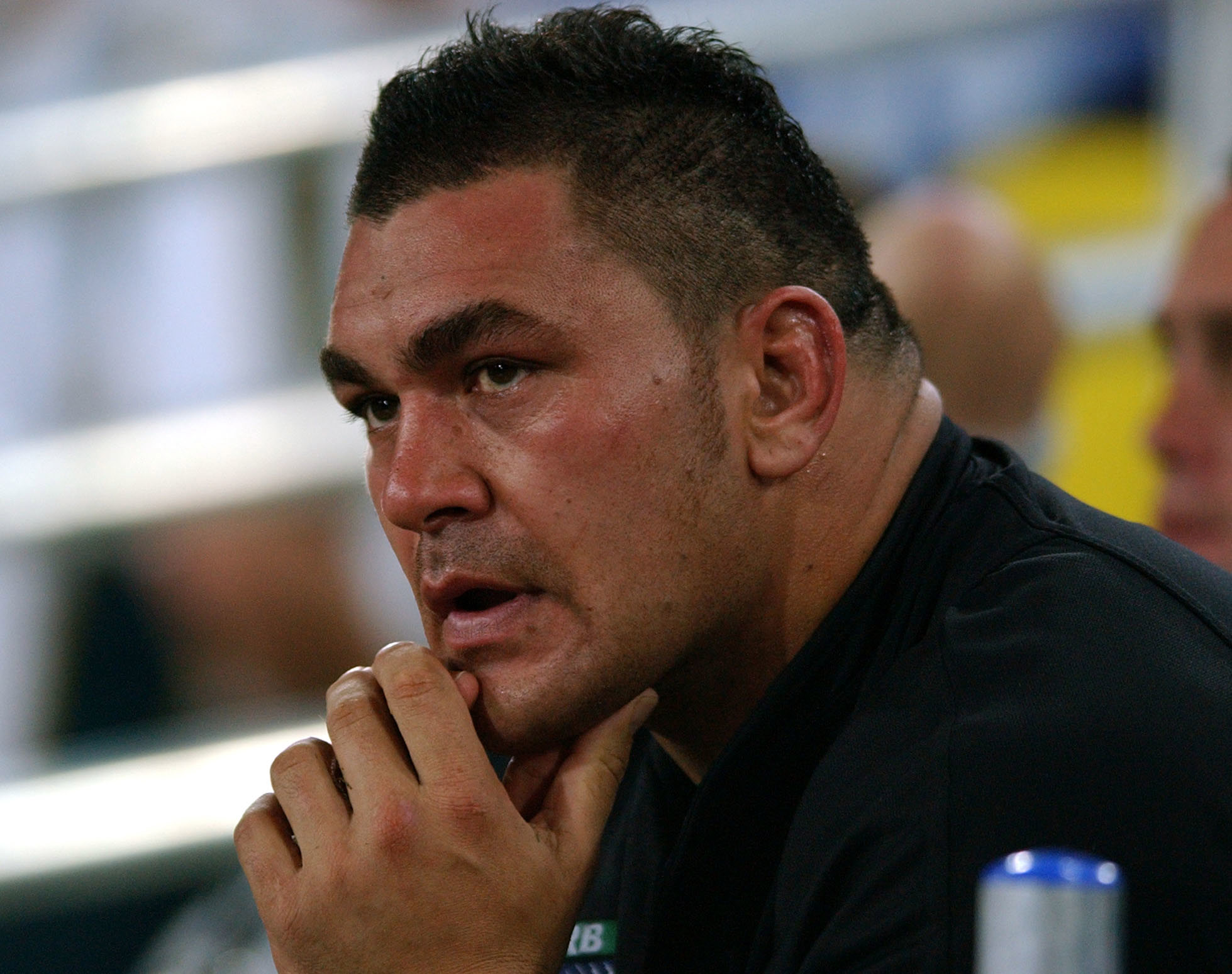

A concerned Meeuws immediately backed off - a selfless act that doctors later said may have saved Darwin from becoming a quadraplegic – or potentially even worse.
“I think he could physically sense immediately something was up in my body, because we sort of stood upright. So we’re sort of in each other’s arms,” Darwin recalled.
“And then it was just a case of me kind of flopping down. He certainly could have gone on with it, but didn’t. When you scrum, you have the safety of the other person in your hands, you know, and if you sense something’s up or something’s amiss, you absolutely have to stop.
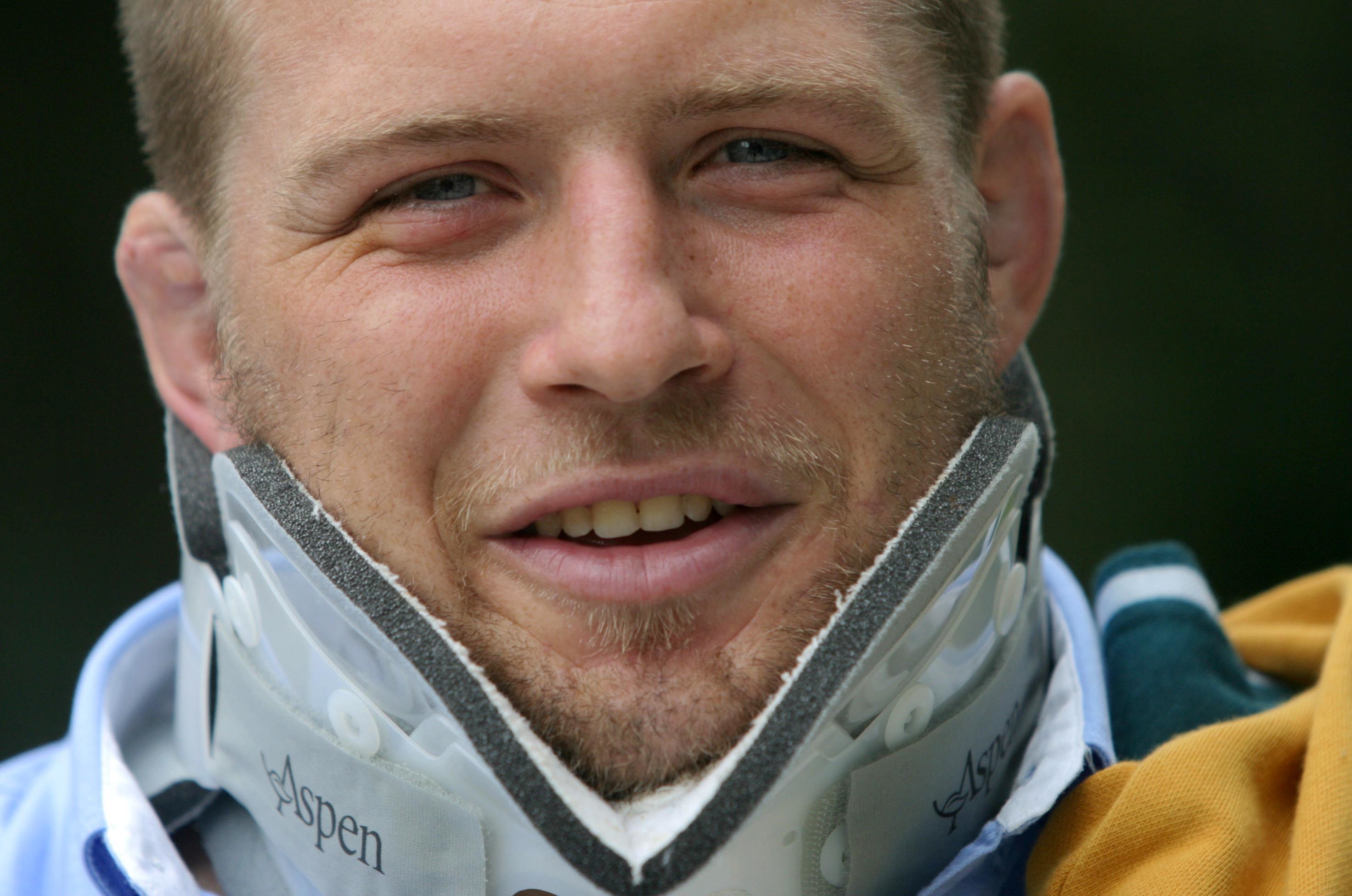

“Every prop that’s been around has had some sort of scrummaging accident at some point. You’ve got to pull back at that point.
“And just because it’s a World Cup semi-final doesn’t mean you keep going. So he did exactly the right thing. I’ll always be grateful to him. We’re always going to have that link between each other.”
Darwin’s post-accident vision of getting into computers proved prescient.
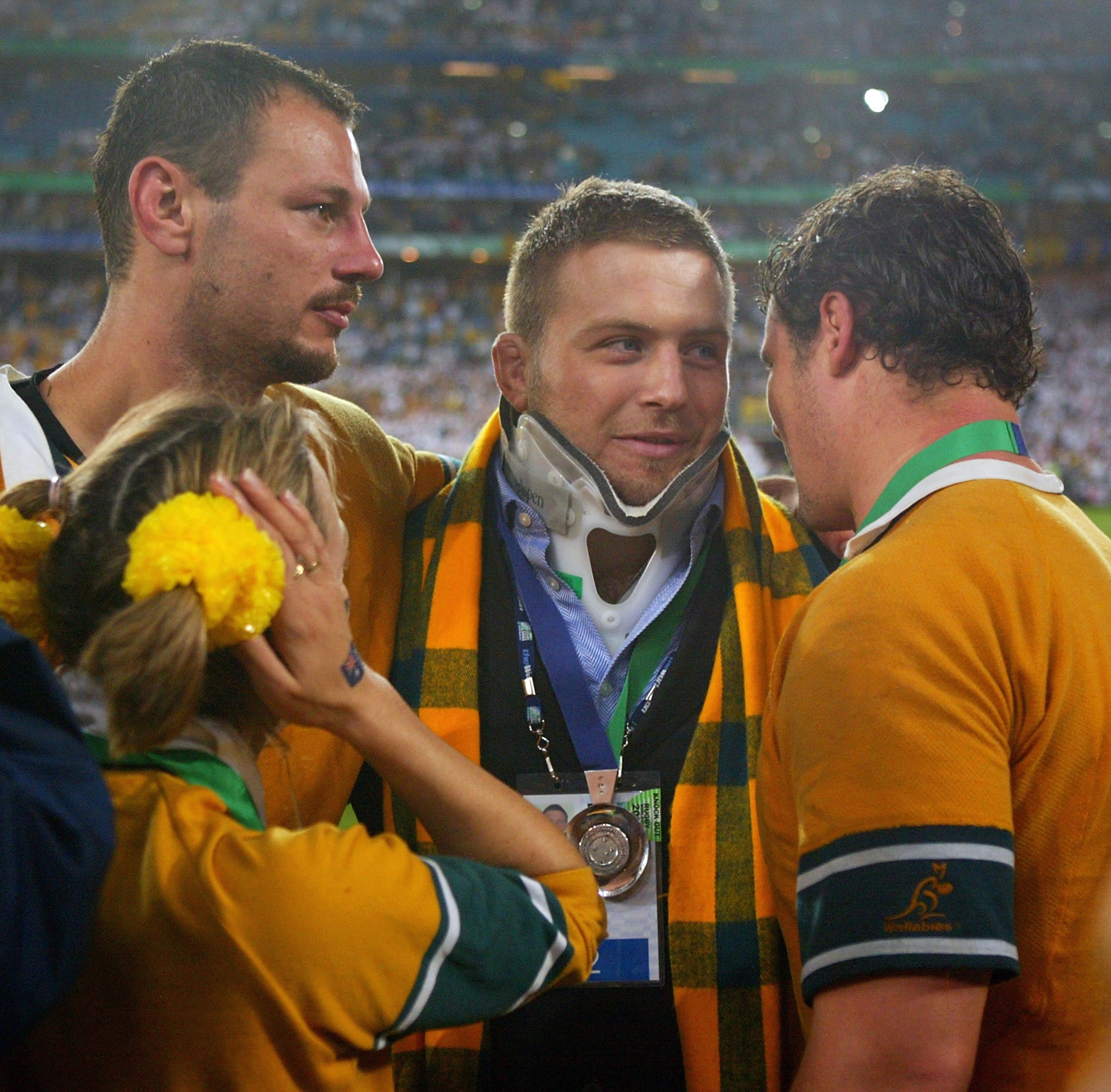

He is now the director of Gain Line Analytics, a company that provides cutting edge intelligence and data to professional rugby teams.
Now 46, Darwin also remembers a rather spooky premonition following Australia’s 33-16 quarter-final win over Scotland in Brisbane.
“I had this really weird sensation on the Thursday, we left camp in Coffs Harbour, walking through the carpark and I was like, ‘shit if we lose this weekend, we’re not going to be back here anymore.’ It was like, ‘this is it right?’
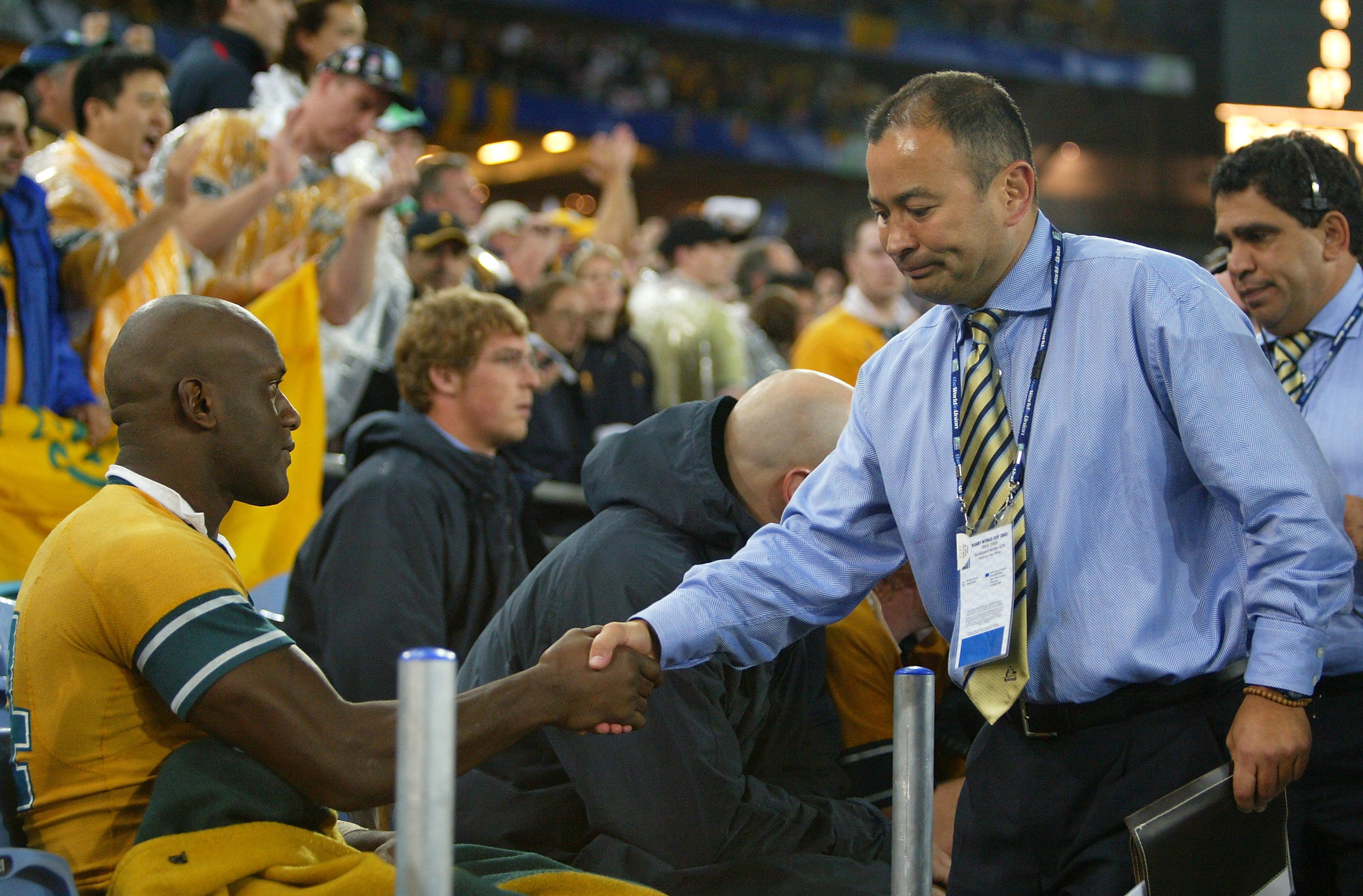

“I had this really weird feeling I was not coming back to Coffs, I don’t know why – and then that played out.”
Darwin has a very clear recollection of the on-field trauma and says he was very calm on the field considering the severity of the situation.
“I was looking at my arms and legs and realising they’re not mine, because I couldn’t move them. That was probably the scary part, is seeing them and thinking I should be able to move them. I should be able to touch them. I couldn’t.
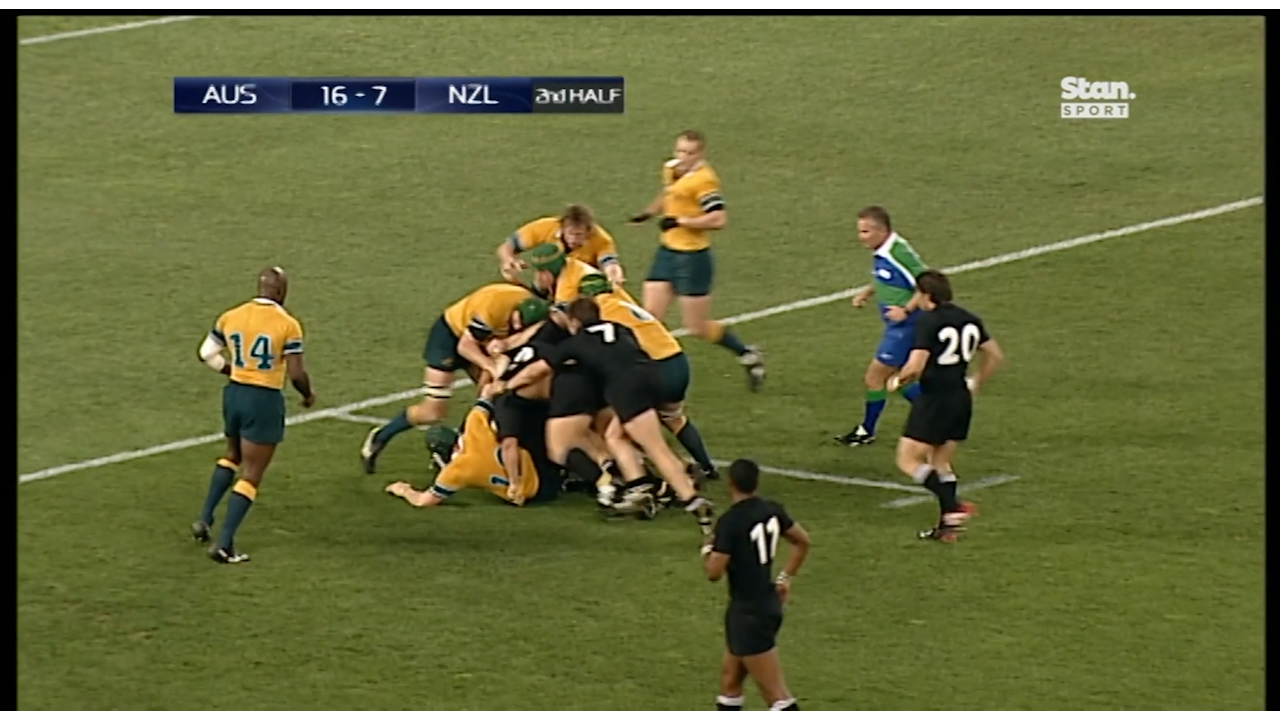

“They call it spinal shock, because your body basically resets when the spinal cord gets touched. So because of that, it wasn’t making sense to me and then physio came on.
“I said, ‘I can’t feel my arms and legs. I don’t know what to do.’ And like these statements sound really panicked. But I was actually very calm. That panic set in later on, when you see family at the hospital and stuff like that…
“There was a big kerfuffle amongst people about who was going to get my shorts.
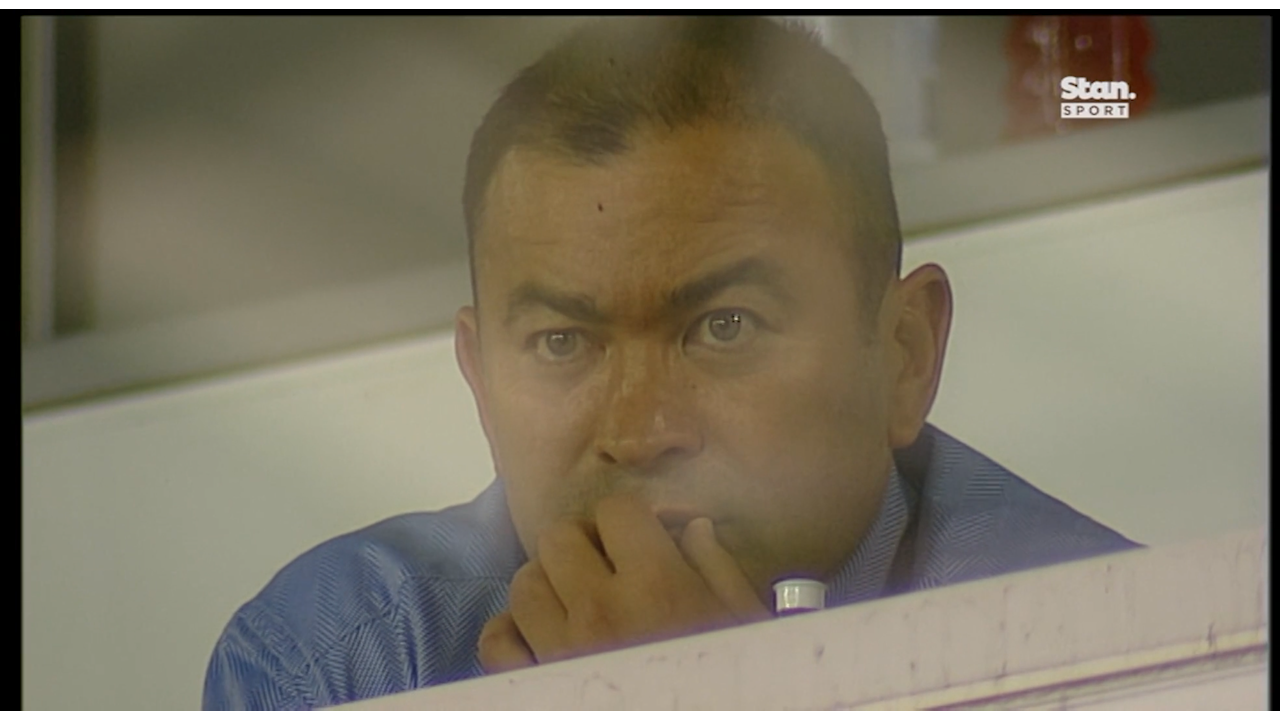

“So my dad made sure he got the jersey then. And then we were winning and then the doctor came and saw me and he’s like, ‘well, these things are gonna work one of three ways. You’re gonna be a quad, you’re gonna walk out of here or you’re gonna die of this injury. And he said, ‘you’re gonna be able to walk out of here’ because I’d been starting to get feeling back within the hour. So that was pretty reassuring.”
But after consulting with a wide range of experts and specialists, Darwin retired two months later as a 27-year-old with 28 caps to his name.
“Thank you to Kees Meeuws, who in a selfless act, may have saved my life,” Darwin said at the time.
Wilkinson’s iconic kick breaks Australian hearts
“The doctor made me go down to the spinal unit and meet some people, I think to make sure I didn’t play again,” he says now.
“That could be me, for the grace of God. I put my family through watching me do that. Pretty difficult to put them through it again.”
The week leading up to the 2003 final was hazy for Darwin as Eddie Jones’ Wallabies prepared to take on Clive Woodward’s England in Sydney.
“I had to do the jersey presentation to the team before the final which is generally a retired player. I was bawling you know, it’s difficult thinking about it now.
“Some of the players were bawling. And that was difficult because that was sort of the first, you know, ‘Ben’s not coming back now.’ The realisation. That’s it.
“I was also taking enormous amount of painkillers. So my memory of the game is really surreal. I spent time in Prince Harry’s box, surrounded by his entourage of women… coming in and out of waves of massive amount of pain.
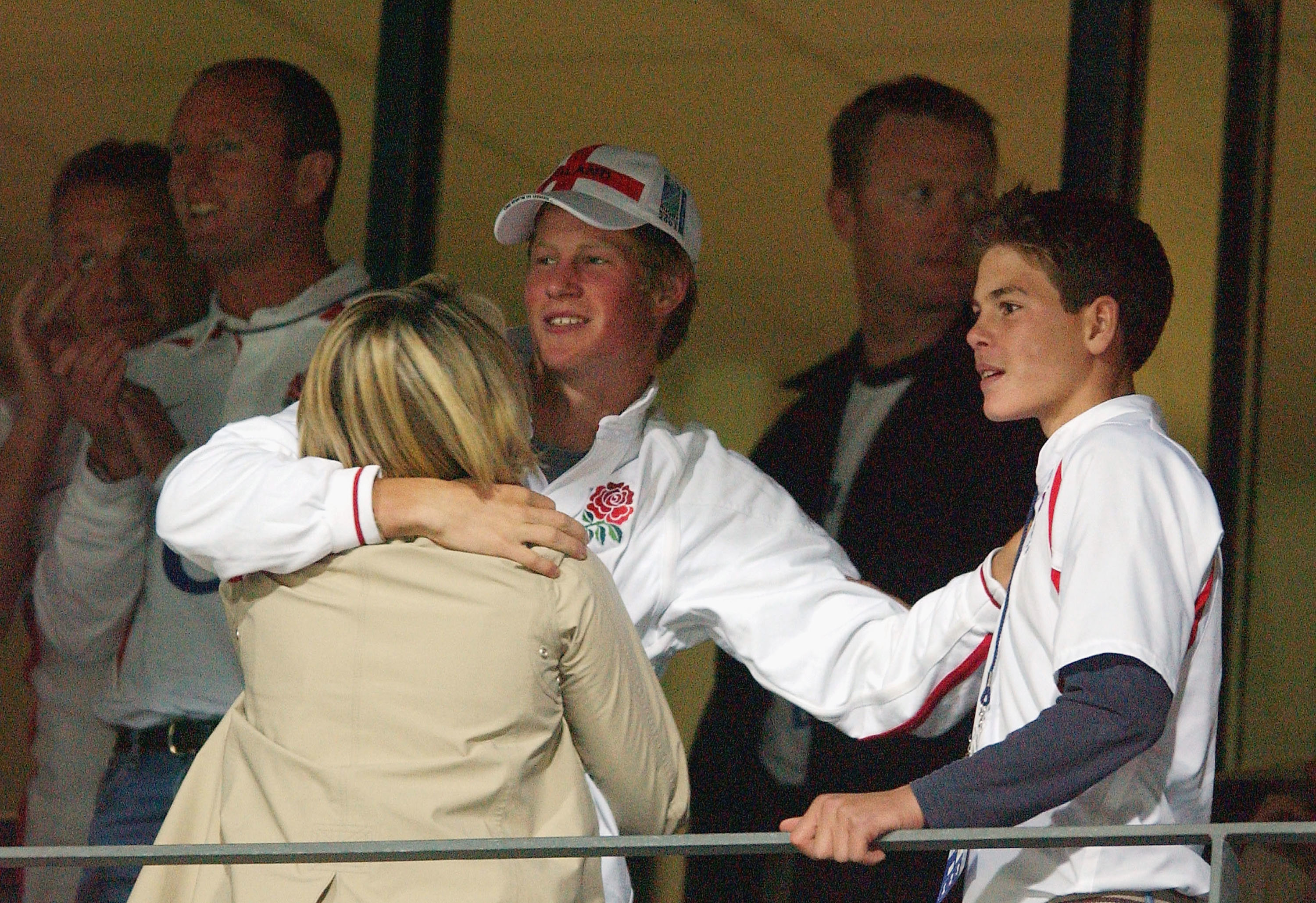

“I don’t really remember any of it except the game went long.”
The mental recovery was much more difficult than the physical.
“There’s a real balance between being happy to be functional, but also missing playing, being sad about not playing anymore. Either of those two emotions, every time you feel guilty… It becomes every conversation you’ve ever had.
“I’ve been asked about my neck 50,000 times. And I’ve met everyone who was there that night. It’s difficult because your entire career gets defined by three seconds.
“But then also there’s this kind of scenario where people overplay how good you could have been, you know, everyone plays it up. And so that becomes a bit difficult to kind of match reality to your own experiences and what people say.
“I worked out I had to move on from that because that’s not going to take you anywhere, it’s not going to be very progressive. But I’ll always have that relationship with Kees.
“A mutual respect.”